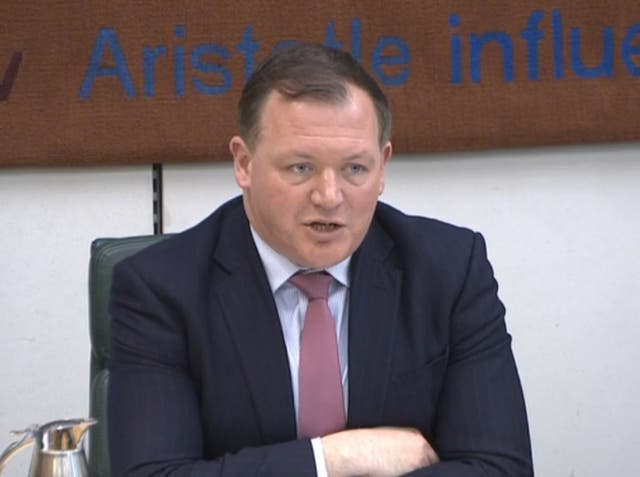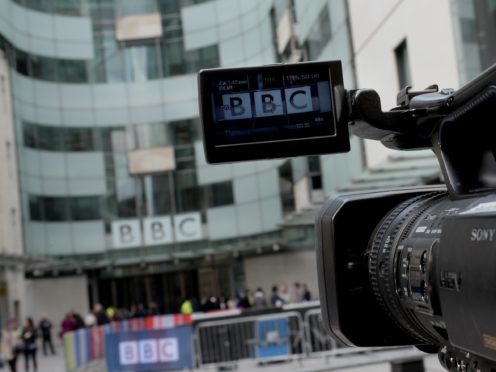Shadow Chancellor John McDonnell has said the “grotesque” and ongoing unfairness in pay at the BBC is offensive.
A report by the Digital, Culture, Media and Sport Committee (DCMS) claims women at the broadcaster are not receiving the same pay for the same work.
The same report describes a culture of “invidious” pay discrimination against women at the BBC.
Speaking to the Press Association outside the BBC’s London offices, New Broadcasting House, Mr McDonnell said: “I think most of us find it offensive that the BBC haven’t resolved this already. There’s grotesque levels of unfairness and I don’t understand why it’s dragging on for so long”.

The BBC has also come under further scrutiny as media regular Ofcom released their annual findings on the corporation hours after the DCMS report and said the “BBC is not always transparent and accountable, particularly when it is proposing to change or introduce public services”.
An inquiry into equal pay at the corporation was launched by the committee following the resignation of former China editor Carrie Gracie.
Conservative MP and chairman of the DCMS Committee Damian Collins told Press Association “household names” are scared to speak out on gender equality as it could put their careers at risk.
Mr Collins said of the findings in the report: “Men and women were not paid the same for work of equal value. Discrimination is illegal. There is a requirement for men and women to be treated equally. What people got paid depended very much on what programmes they worked on and whether they had an agent.”

He added: “Some presenters who are household names that don’t wish to be named because they concerned that by speaking out publicly it may affect their careers at the BBC. They feel frustrated that their cases have yet to be resolved and that they have been treated unfairly by an organisation they have given many years of their life to working for.”
The committee report also claims staff were coerced into setting up personal service companies (PSCs), allowing them to be employed by the BBC but foregoing sick pay and other employment benefits.
Talking on BBC Radio 4’s Today programme, Mr Collins said: “If people have lost out as a result of this and are facing now these very big tax bills because they were told they had to be paid in this way, then I think those people should be compensated, I don’t think people should be facing a life-changing amount of money they have to find because of a BBC policy that was issued in error.”
The report further claims that a system of devolved powers to managers allows for arbitrary decisions on salary and branded the policy used by the BBC between 2007 and 2012 of hiring presenters without sick pay or other benefit as a result of using a PSC a “disgrace”.
Wouldn’t blame anyone for being bored to tears by #BBCWomen wanging on about #equalpay – but as #Glasgowwomensstrike this week proves , it’s an everyday, tedious reality for too many working women in Britain. In 2018.
— Jane Garvey (@janegarvey1) October 25, 2018
Woman’s Hour presenter Jane Garvey, who has been outspoken on gender pay, told the Press Association: “MPs on the committee sound as frustrated by the pace of change at the BBC as we are.
“The grievance process is complicated, stressful and time-consuming, and the new pay framework does nothing to help women compare salaries to men doing the same work.
“In a week where thousands of council workers in Glasgow have gone on strike over equal pay, this is an illustration that wherever you live in Britain, and whatever you do, chances are if you’re female, you’re still not getting equal pay.”
#EqualPay – latest #bbcwomen statement on Select Committee report: pic.twitter.com/SdhuLiL6BI
— kriszta satori (@fulelo) October 25, 2018
The report has been called “out of date” by the broadcaster.
The BBC said: “While we still have more to do, much of this report is already out of date.
“Recent disclosures by other media organisations show that the BBC’s gender pay gap is amongst the smallest and well below the national average. But we do hold ourselves to a higher standard.
“That is why our action on pay has seen the BBC make real progress in addressing equal pay cases; carry out an independent audit of equal pay overseen by a former Court of Appeal judge; introduce independent oversight so that disputes can be resolved; take clear steps to rebalance top talent pay; reform our pay structure to ensure fairness and give an unprecedented level of transparency and information about pay ranges for all staff; and set up independent reviews to see what further steps should be taken on pay transparency.
“That’s why so many colleagues have contributed to projects we’re doing – on gender, ethnicity, disability, LGBT and socio-economic diversity. We all want to make this a great place to work, where people are properly rewarded for their expertise and experience.”
